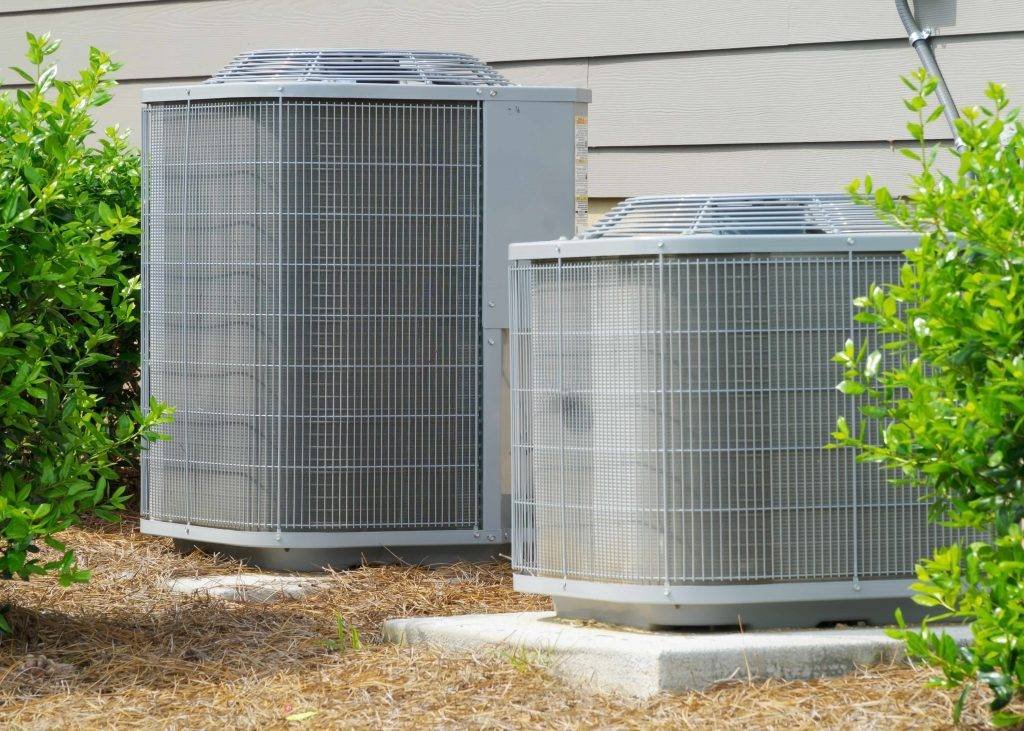When getting a new AC, have you ever asked, “what size of central air conditioner do I need?” When choosing the right central air conditioner, size does matter. To find the perfect fit for your home, you need to consider various factors. We’ll help you determine what size is right for your needs and what features to look for when deciding.
How to Measure Central Air Conditioners?
Size in the context of air conditioning pertains to cooling power rather than actual size. Larger units tend to be more powerful, but it’s nearly hard to determine an AC unit’s cooling capacity just by glancing at it. The only way to know what size of central air conditioner you need is by measuring your home and doing some calculations.
There are two main ways to measure an air conditioner’s cooling capacity: BTUs and tons. Most AC units are measured in tons, with one ton corresponding to 12,000 BTUs per hour. To calculate the number of tons you need, divide the total BTUs by 12,000. It will give you a rough estimate of what size central air conditioner you need. Once you have this number, you can start narrowing down your choices.
Why Install A Correctly Sized Central AC?
Installing a central air conditioner that’s too large or too small will have consequences. If your unit is too small, it will have to work harder to cool your home, leading to higher energy bills and more frequent repairs. Additionally, a small AC unit won’t be able to remove enough humidity from the air, which can make your home feel stuffy and uncomfortable.
On the other hand, installing a too-large unit will also result in higher energy bills. Additionally, an oversized air conditioner will cycle on and off more frequently, which can shorten its lifespan. Not to mention, an AC that’s too big for your home won’t remove humidity effectively either.
Before beginning your search for an air conditioning system, whether a central one or a wall, standalone, or window unit, it’s critical to know what you need.
What Factors to Consider?
In addition to the size of your home, there are other important factors to consider when purchasing a central air conditioner. Some of the most important factors include:
The climate in your area: The climate will play a big role in what size of central air conditioner you need. If you live in an area with a mild climate, you won’t need as much power to keep your home cool. However, you’ll need a more powerful unit if you live in an area with extreme heat or humidity.
The number of people in your household: The more people in your household, the more heat your home will retain. As such, you’ll need a larger unit to cool your home if you have a lot of people living under one roof.
The type of insulation in your home: Homes with poor insulation will require a larger air conditioner to maintain a comfortable temperature. If you’re unsure how well insulated your home is, you can hire an energy auditor to assess your insulation and give recommendations.
Your energy efficiency goals: If you’re looking to save money on your energy bills, you’ll need to purchase a more energy-efficient unit. Higher-end units tend to be more expensive, but they’ll save you money in the long run.
The number and size of windows in your home: The number of windows in your home will also affect what size of central air conditioner you need. If you have a lot of large windows, they’ll let in more heat, so you’ll need a larger unit to cool your home.
What Size of AC Should You Get For Your Home?
Now that you know what factors to consider, you can start calculating what size of central air conditioner you need. To do this, you’ll need to measure the square footage of your home and compare it to what’s known as a BTU chart.
A BTU chart is a tool that shows how many BTUs are required to cool specific square footage. To find the right chart for your needs, search for one that’s specific to your climate zone. Once you have the chart, simply look up the square footage of your home and find the corresponding BTU rating.
For example, let’s say you live in a 1,000-square-foot home in zone 5. According to the chart, you’ll need a unit with a BTU rating of 28,000-34,000.
Once you have the BTU rating for your home, you can narrow down your choices and find the perfect central air conditioner for your needs.
Conclusion
Purchasing a central air conditioner is a big decision, and choosing the right size for your home is essential. Use the information in this article to help you make an informed decision and find the perfect unit for your needs. Consider the climate, the number of people, and the type of insulation in your home when making your decision. You should also look for a unit with the right BTU rating for your home’s square footage. With a bit of research, you can find the perfect central air conditioner for your needs.

